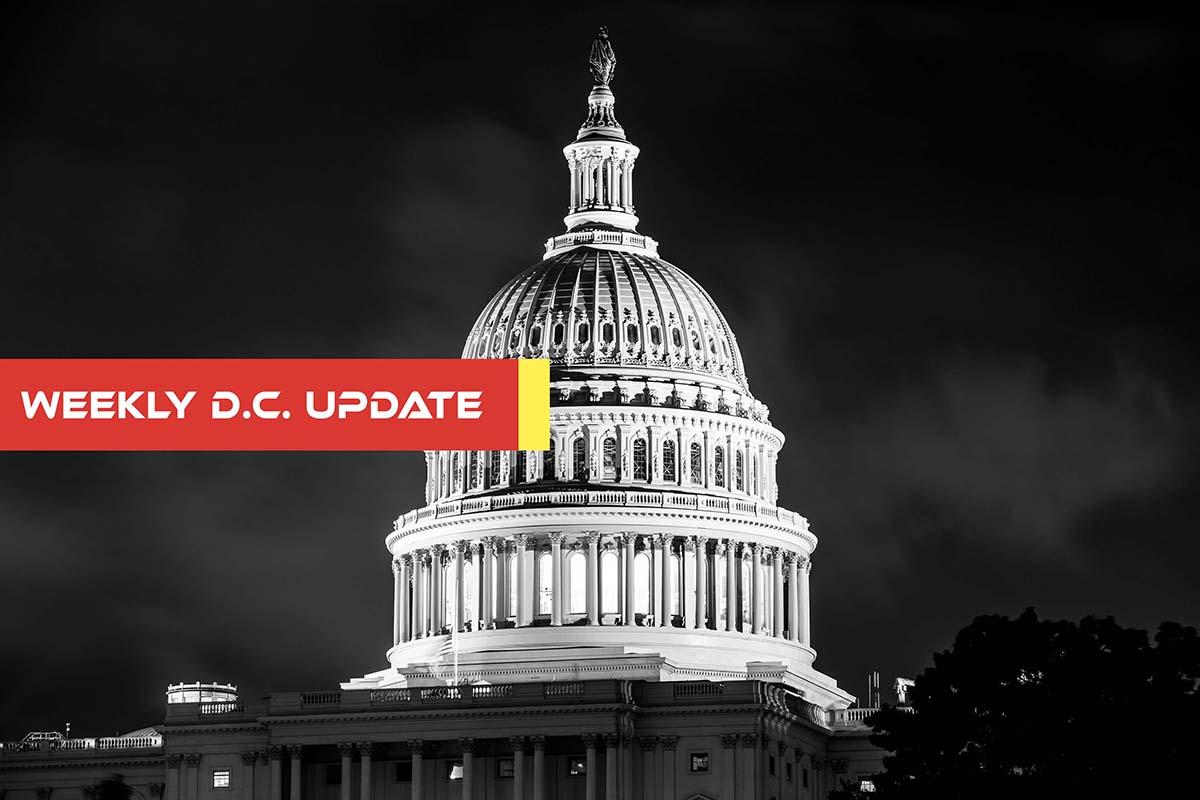Every week, Native News Online brings you the latest Indian Country news and moves from Washington, D.C.

Want more Native News? Get the free daily newsletter today.
Hearing on Bryan Newland’s Confirmation to Become Assistant Secretary – Indian Affairs at the U.S. Department of the Interior
The Senate Committee on Indian Affairs held a hearing on Wednesday on Bryan Newland’s nomination to become the next Assistant Secretary – Indian Affairs at the U.S. Department of the Interior.
Newland was appointed by President Joe Biden to serve as Principal Deputy Assistant Secretary for Indian Affairs, which allowed him to become familiarized with the position of Assistant Secretary – Indian Affairs.
The former chairperson of the Bay Mills Indian Community, located in Michigan, previously worked for the Interior Dept. in the Obama administration.
Tribal Business News reported:
Sen. Lisa Murkowski (R-Alaska), the vice-chair of the committee, seemed pleased during Newland’s testimony, but she raised some questions about his knowledge of specific Alaska Native-related issues, and she said his past comments on Alaska Native Corporations were troublesome and caused “hot temperatures” to flare.
Murkowski said she looked forward to soon receiving complete written answers to questions on various issues from Newland, including on Alaska Native-focused ones.
Senate Passes Bipartisan Bill Expanding Opportunities at Tribal Colleges and Universities
WASHINGTON – The U.S. Senate passed on Wednesday the bipartisan IMPACT Act as part of the U.S. Innovation and Competition Act. The legislation creates the Telecommunications Workforce Training Grant Program, allowing tribal colleges and universities to partner with industry stakeholders and apply for grants to educate and train students to participate in good-paying telecommunications jobs of the future.
“We’re expanding opportunities for students in tribal communities to succeed in the jobs of the future while helping bridge the digital divide across Arizona,” Sen. Kristen Sinema (D-AZ), who sponsored the bill with Sen. Roger Wicker (R-MS), said.
The IMPACT Act creates the Telecommunications Workforce Training Grant Program at the Department of Commerce. Tribal colleges and universities, historically black colleges and universities, and other minority serving institutions can partner with industry, labor, or nonprofit stakeholders and apply for grants to educate and train students to participate in the telecommunications workforce. Thirty percent of the grants would go to tribal colleges and universities The grants would last for five years and the recipients would have to provide a report on their programs.
EPA Announces $6 Million for Tribes to Support Wetlands and Healthy Watersheds
The U.S. Environmental Protection Agency (EPA) on Friday announced selections under two Clean Water Act (CWA) grant programs to support leadership of Tribes in protecting and restoring water resources. Under CWA,
The agency anticipates awarding approximately $3 million to 18 Tribal nations and one Intertribal organization under the Tribal Wetland Program Development Grant competition and an additional $3 million in CWA Section 319 Tribal Competitive Grants to 32 Tribal nations to support projects to manage nonpoint source pollution.
For more information on Wetland Program Development Grants: https://www.epa.gov/wetlands/wetland-program-development-grants-and-epa-wetlands-grant-coordinators.
For more information on Tribal Nonpoint Source Management Grants: https://www.epa.gov/nps/tribal.
Senate Agriculture Committee Sends Janie Simms Hipp’s Nomination to Full Senate
The Senate Agriculture Committee on Thursday sent the nomination of Janie Simms Hipp to the full Senate by voice vote and with bipartisan praise.
“She has a long history of working on agricultural legal issues and a breadth of experience that will be very valuable. I strongly support her nomination,” Sen. Debbie Stabenow (D-MI), chair of the Agriculture Committee, said.
Hipp, a citizen of the Chickasaw Nation, would be the first Native American woman to become general counsel for the Agriculture Department if confirmed by the Senate.
Alaskan Native Kristi Nuna’q Williams to Lead Senate Committee on Indian Affairs
Kristi Nuna’q Williams has been selected to serve as staff director and general counsel of the Senate Committee on Indian Affairs. Williams will be the first Alaskan to hold this position.
Williams was born in Fairbanks. She is of Gwich’in and Koyukon Athabascan descent and an enrolled Gwichyaa Zhee Gwich’in tribal citizen.
Williams previously worked for Sen. Lisa Murkowski (R-AK) as her lead staff member on the Committee, before working at the Department of the Interior, a national law firm specializing in tribal rights advocacy, and most recently, Calista Corporation. Williams will begin her new position on July 6.
More Stories Like This
Native News Weekly (August 25, 2024): D.C. BriefsUS Presidents in Their Own Words Concerning American Indians
Native News Weekly (December 14, 2025): D.C. Briefs
Wounded Knee Massacre Site Protection Bill Passes Congress
Two Murdered on Colville Indian Reservation
Help us defend tribal sovereignty.
At Native News Online, our mission is rooted in telling the stories that strengthen sovereignty and uplift Indigenous voices — not just at year’s end, but every single day.
Because of your generosity last year, we were able to keep our reporters on the ground in tribal communities, at national gatherings and in the halls of Congress — covering the issues that matter most to Indian Country: sovereignty, culture, education, health and economic opportunity.
That support sustained us through a tough year in 2025. Now, as we look to the year ahead, we need your help right now to ensure warrior journalism remains strong — reporting that defends tribal sovereignty, amplifies Native truth, and holds power accountable.
 The stakes couldn't be higher. Your support keeps Native voices heard, Native stories told and Native sovereignty defended.
The stakes couldn't be higher. Your support keeps Native voices heard, Native stories told and Native sovereignty defended.
Stand with Warrior Journalism today.
Levi Rickert (Potawatomi), Editor & Publisher

